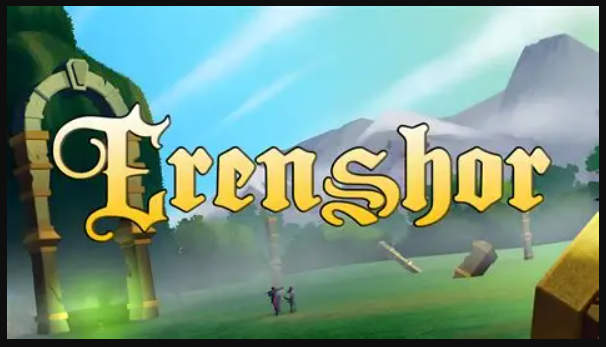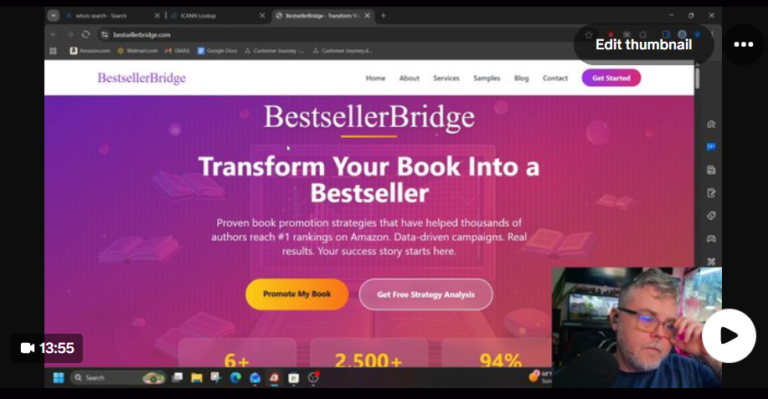Since I’m doing a couple of presentations on the business of indie authorship next month, I figured it’s a good time to talk about a few of the tools I use on a regular basis.
Don’t be surprised when you see how low-tech I keep my operation. I might be a cyberpunk author who works in the tech industry, but I’m a huge fan of simplicity. I will always choose analog over digital when the latter is going to slow me down rather than support my work.
This may not end up being a comprehensive list, but that’s only because I try new software and change my stack from time to time based on my needs and what’s working.
Emails and Newsletters
I started with Mailchimp, but have since moved on to beehiiv. This is a great platform for creating and sending regular newsletters, and I’ve had so much success with it that I’ve now put my clients on the platform, too.
beehiiv makes it easy to create professional-quality emails, and cranking out a weekly newsletter is quick and painless. The platform also keeps previous emails archived, which allows my readers to go back and view any email newsletter I’ve ever sent, much like a blog.
This email newsletter tool also incorporates native cross promotion and ad revenue systems. With beehiiv, I generally make a few dollars on every email newsletter from ad revenue. Not much, but more than I made sending them through Mailchimp!
I’m currently evaluating opportunities to advertise my own newsletters inside beehiiv. Depending on the ROI, it might become a viable way to grow my list.
If you use my links to beehiiv, you will get 20% off your first three months. They also have a free tier that’s probably sufficient for most indie authors.
Audience Building
I’m pretty open about the fact that I sold my first 8000 books without any social media promotion. I didn’t post about them on Instagram or X, and I still don’t even have a Facebook account. (Nor do I have any interest in getting one.)
I’ve only recently started posting on Instagram, and maybe 1 out of 20 posts is about my novels. What’s really increasing my sales is paid social advertising, which is handled by my digital marketing manager, Ryan. I hired him about two months ago, and he handles all of the ads through Instagram and Facebook, completely hands-off for me.
So, what did I do to sell so many books without posting on social? One of the channels I can point to is StoryOrigin. I used this newsletter swapping platform to grow my email list and share my book with opt-in readers who receive email newsletters from other authors. Rather than spending hours on social, I could spend twenty minutes a week putting together my newsletter, sharing other author’s books, and they would share mine in return.
It’s a pretty awesome system, and it actually helps to ensure your effort is reaching a qualified audience rather than blasting your time and energy out into social media platforms where 95% of the people who see your posts don’t even read.
Click here to try StoryOrigin and get more readers without the time sink of social media!
Yes, this works a lot like BookFunnel, but I found StoryOrigin first — and I’m really glad I did. Once I decided to give BookFunnel a try, I found it to be severely cumbersome and confusing in comparison. I still use it about once every two months just because it reaches different readers — but it’s honestly such a bad user experience that I have to force myself every time.
Search Engine and Research
This is the one slot where AI does actually fit into my creative process. I use Perplexity as my search engine when researching for my books. Really, I use it as a search engine whenever I’m looking to answer a question, as it’s very good at aggregating expert information about any topic and then citing the sources (that part’s important).
Perplexity is also installed on my phone, overriding whatever lousy AI came preinstalled. It’s one of the best “conversational” AIs I’ve used so far, and I can easily discuss search topics at length with the app.
What I Don’t Use
Regarding what I said about being low-tech earlier, the list of apps I think are a waste of time is much longer than the list of apps I use. For the sake of time, I’ll refer to them by their general function rather than listing all of the similar apps in a category.
Worldbuilding Apps
I’ve explored apps like Campfire, and probably a half-dozen others that operate in a similar way. They’re meant to be hyper-complex notetaking apps — a sort of Wiki-maker for worldbuilding.
Considering the absolutely massive scale of my worldbuilding over the last couple of years, you’d think I’d be all over something like Campfire. The problem is simply that I find these types of solutions to be huge wastes of time.
Remember, every hour you spend uploading images and maps and long expository screeds into Campfire is an hour you’re not doing something else. Like actually writing your next book. Or promoting your last book.
No offense to people who use these types of programs, but I consider them obstacles to authorly success. They enable the dreaded worldbuilder’s disease. They give the false illusion that hoarding ideas is somehow getting you closer to a great novel.
In most cases, that’s just not how it works.
The final nail in the coffin was when I realized I could feed all of my novels and notes into an AI agent and create a searchable, interactive worldbuilding bible of my own…in about two minutes.
Writing Apps
I write in Google Docs and have done so for around two decades.
I’ve tried using software like Grammarly and Hemingway in the past, but those experiments bombed. Honestly, I wouldn’t trust one of these apps to appraise my writing and offer advice. That’s what beta readers and editors are for — and why would I want a popup stopping me in the middle of a scene to suggest some algorithmically-generated advice?
I wouldn’t. Speed to page is key to the way I write. I need to get the ideas out and then worry about sharpening them to a fine point later.
I recommend streamlining your actual writing process so that you can get the words down. Leave editing and polishing for later passes.



